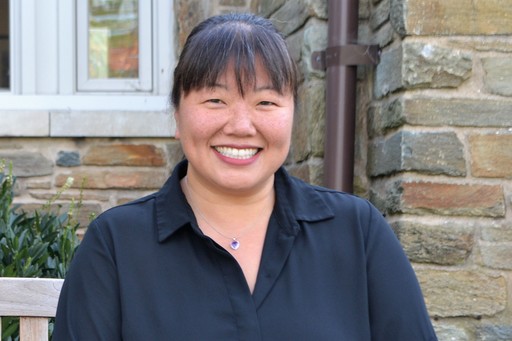Our community has experienced a lot of turmoil in the past six months. The ongoing pandemic, division over the election, and as Emma Schneck ‘21 points out, the “rise of Instagram accounts like Me Too Montco, Black Mainline Speaks, among others” have surrounded our school. The politically diverse community at GA leads many students to avoid discussions on controversial topics. In order to help GA hold these discussions, Rosetta Lee visited on October 19, to explain how to have “courageous conversations.”
Lee is a faculty member and professional outreach specialist at Seattle Girls School. She has served on the faculty of the National Association of Independent Schools Diversity Leadership Institute, as president of the board of directors of SMARTgirls, and worked with over 200 K-12 schools on issues of diversity and inclusion, among many other roles and accomplishments.
In her presentation, Lee discussed examples of common barriers to courage, the difference between a safe versus comfortable space, and how to transition from safe to brave conversations. She explained that a comfortable space is where ideas are simply validated, resulting in an “echo chamber.” In contrast, a safe space is where you are treated with respect, but others may challenge your beliefs. Other key points included the power of vulnerability, and differentiating between dialogue and debate. Lee explained that dialogue is “collaborative,” and calls for temporarily suspending one’s beliefs, while debate is “oppositional,” and characterized by searching for differences.
Germantown Academy’s Director of Equity and Inclusion, Ms. Anika Walker-Johnson, noted that Lee explored many tools that could be applied at GA. She especially valued Lee’s “ability to give people language to talk about difficult topics” and “very tangible strategies to use to approach those difficult conversations,” no matter in a school environment or personal relationships. Ms. Walker-Johnson also agrees that vulnerability is necessary in a safe space, saying, “when I’m vulnerable in a conversation with someone else it gives them permission to be vulnerable with me” and that is something we need to “keep practicing,” like an athlete practices their sport.
Students also found that Lee’s talk gave them new insights. Schneck shared that she has “experienced a lot of situations where I was in what I thought was a dialogue with someone, when in reality one or both of us were debating.” Daelyn Nwaobosi ‘21 hopes that in dialogues we can emphasize “the idea that there’s not always a solution, one side isn’t always correct,” and that teachers and students can gauge “levels of comfort” and emotional regulation for difficult topics.
As one of SUMA’s leaders, Schneck hopes that we can normalize “the idea of creating or enforcing community norms for discussion”. Ms. Walker-Johnson also says that if we can “hold each other accountable” to community agreements, we can have more “productive conversation” and eventually “internalize” our community norms. GA community members can build up these practices within the classroom, clubs, and advisories.
Nwaobosi sums up Lee’s talk as “open-mindedness,” Schneck as “kindness,” and Ms. Walker-Johnson as the idea that we need to “keep practicing,” describing how “as we practice, the more comfortable we get with being uncomfortable.”
https://about.me/rosetta.lee

